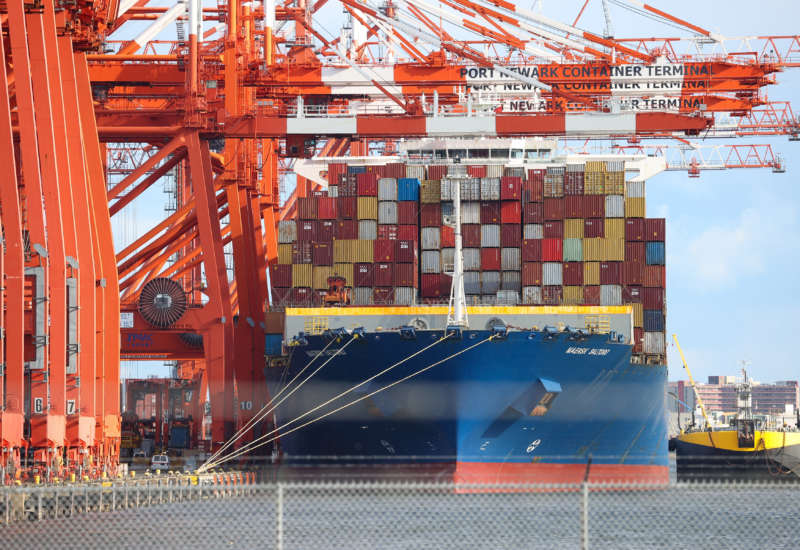

On Tuesday, the White House announced an “action plan” to reduce congestion at U.S. ports and inland waterways, with the aim of mitigating the supply chain issues that are slowing down the delivery of goods across the country.
Officials from the Administration have indicated that a large part of the plan will be funded through the $17 billion port funding that is included in the newly-passed bipartisan infrastructure billEven though President Joe Biden still hasn’t signed the bill into effect, this was done. Overflowed ports of entry will also be cleared using funds left over from previous Department of Transportation grants.
Biden will likely talk about portions of the plan Wednesday during a scheduled visit at the Port of Baltimore.
According to a factsheet provided by the Biden administration the federal government will “increase federal flexibilities for port grants; accelerate port infrastructure grant awards; announce new construction projects for coastal navigation, inland waterways, and land ports of entry; and launch the first round of expanded port infrastructure grants funded through the Bipartisan Infrastructure Deal.”
Officials highlighting specific actions planned for the Port of Savannah, which is particularly backlogged. Five inland lots will be created to absorb the shipping containers that clog the docks. This port will receive $8 million in federal spending. Containers have been sitting at Port of Savannah for an average of 8.5 days, which is more than twice the time that the port aims to keep them in one place.
This project and others at Port of Savannah will provide “immediate relief”The administration stated that the holidays will be over in the next 30 to 45 day.
The supply chain issue has not only slowed down delivery of some goods but also led to higher prices in the country. Mahir Rasheed, an economist at Oxford Economics, says that the supply chain issue has led to higher costs across the country. around 60 percent of the recent increase in the prices of consumer goods can be attributed to the slowing down of the nation’s supply chain.
Consumer prices rose by 6.2 percent overall compared to the same time last year. These increases began in April when the country reopened and demand for products increased while supply remained constant.
Imbalances between supply and demand “continue to drive inflation metrics” to this day, said Rubeela FarooqiChief U.S. economist at High Frequency Economics.
As such, the government plays a minimal part in the supply-chain issue. private companies handle most of the work at ports of entry. As inflation fears and the state the U.S. economy rise, Biden appears to be in danger of facing backlash from voters.
An Economist/YouGov poll conducted on November 6-9 found that Biden’s approval rating is currently at 42 percent, down by 9 points compared to his polling in early July. Only 39 percent approve of Biden’s handling of the economy, also down 9 points from where he stood in the July poll.
A plurality of respondents (38 percent) rated the U.S. economy overall as “poor” while just 32 percent said it was “fair.” Only 25 percent said it was “good” or “excellent.”
